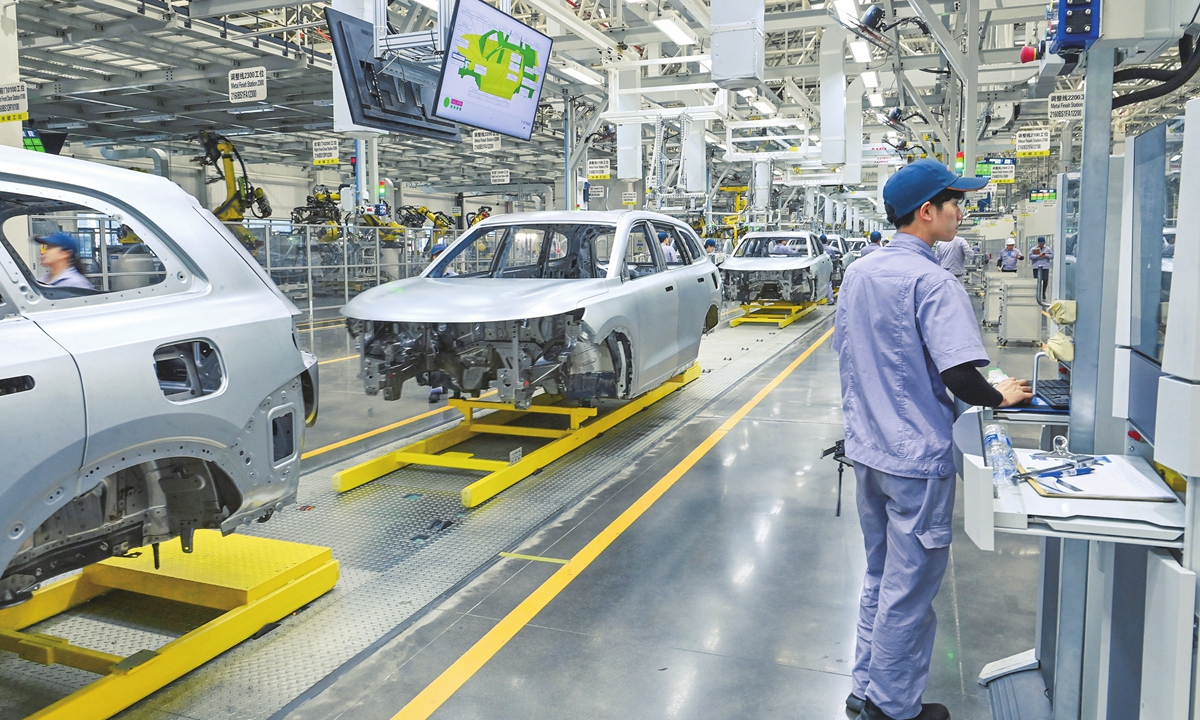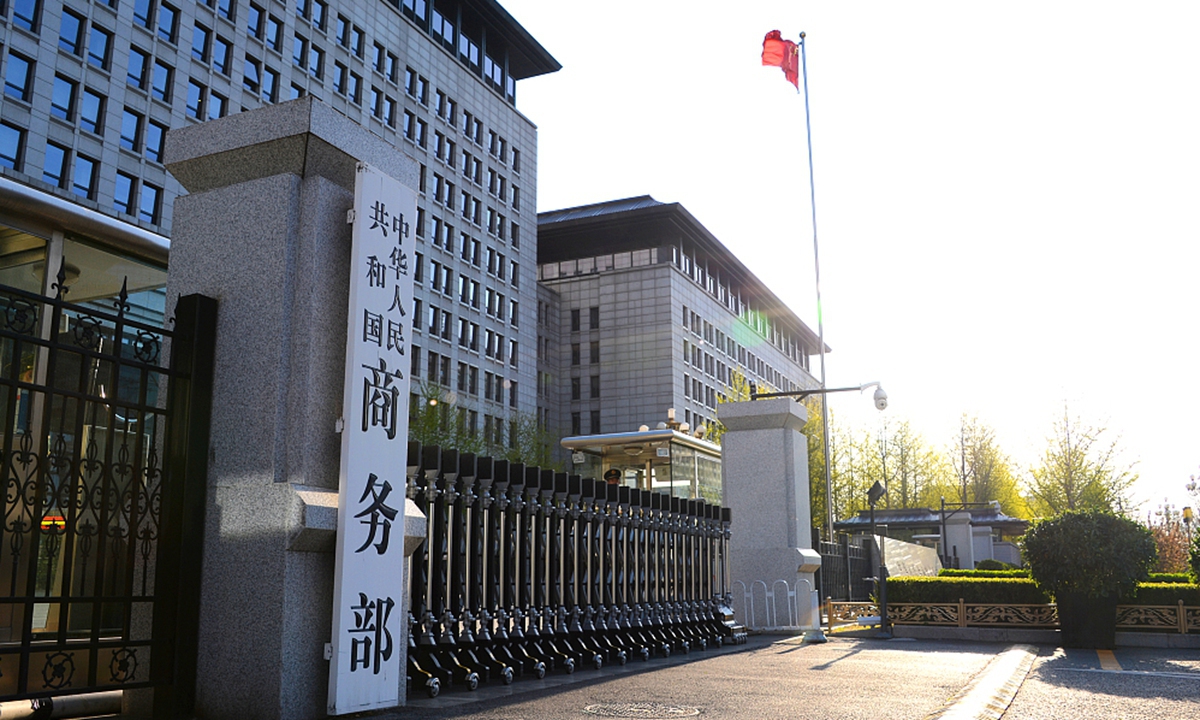US should play a responsible role in ensuring stable, smooth new-energy supply chain: FM spokesperson

The manufacturing line of a NEV factory in Southwest China's Chongqing Municipality Photo: VCG
Ensuring a stable and smooth global supply chain serves the interests of all, and is a responsibility that should be shared by all parties, including the US, a Chinese Foreign Ministry spokesperson said on Thursday, in response to comments made by US Treasury Secretary Janet Yellen on Chinese new-energy products.
A Chinese expert in China-US trade said that China's edge in new-energy industries are the result of Chinese entrepreneurship, massive investment in tech innovation and the country's comprehensive manufacturing strength, as well as the choice of the market, which US officials should respect.
On Wednesday, Yellen said she intended to warn Chinese officials in "a constructive talk" about the negative effects of subsidies for China's clean energy products, including solar panels and electric vehicles (EVs), during a planned visit to China, according to a report by Reuters.
Yellen reportedly said China's "overproduction" of solar panels, EVs and lithium-ion batteries have "distorted" global markets and hurt jobs in other industrial and developing economies.
In response, Foreign Ministry spokesperson Lin Jian said at a routine press conference on Thursday that China firmly opposes trade protectionism and unilateral bullying.
The global industrial and supply chains are shaped and developed by the laws of market and business choices combined, Lin pointed out, noting that the vigorous development of China's new-energy sector relies on technological innovation and excellent quality formed amid global market competition, rather than relying on so-called subsidies for support and protection.
"Speaking of subsidies, I would like to point out the US is leveraging the US Inflation Reduction Act (IRA)'s tax credit policies to distort fair market competition and disrupt the global industrial chain, violating relevant rules of the WTO and the principle of market economy," Lin said.
"China firmly opposes such acts by the US and urges the US to correct its discriminatory industrial policies," said Lin.
Zhou Mi, a senior research fellow at the Chinese Academy of International Trade and Economic Cooperation, told the Global Times on Thursday that any mismatch in supply and demand can only be addressed through global industry dialogue and cooperation.
Zhou urged the US side to observe the laws of market, refrain from unilateral control measures under the pretext of protecting national security, and lower tariffs on Chinese goods.
In mid-March, Donald Trump, now presumably the Republican Party US presidential candidate, threatened that he would hit cars made in Mexico by Chinese companies with a 100-percent tariff, according to Bloomberg.
In what analysts say is a "reasonable, legitimate and well-founded" move, China lodged a dispute complaint at the WTO against the US over discriminatory subsidies on new-energy vehicles (NEVs) under the US IRA on Tuesday.
The move not only aims to safeguard the interests of Chinese new-energy vehicle companies and a fair competitive environment for the global NEV industry, but also to firmly defend the rules-based multilateral trading system and resolutely maintain the stability of the global NEV industrial chain and supply chain, a spokesperson of the Ministry of Commerce said on Thursday.
In 2023, China accounted for around 60 percent of global electric car sales, according to the International Energy Agency (IEA). China doubled solar panel capacity in 2023, and wind power capacity rose by 66 per cent from a year earlier, the IEA estimated.
China is a current leader in new-energy industry. In 2023, its export value of solar panels, electric vehicles and lithium-ion batteries totaled 1.06 trillion yuan, increasing 29.9 percent from 2022, customs data showed.
China's new-energy industry deserves to be rewarded as their successes stem from risky endeavors that aim to transform the world into a green, better living place, Zhou said.



